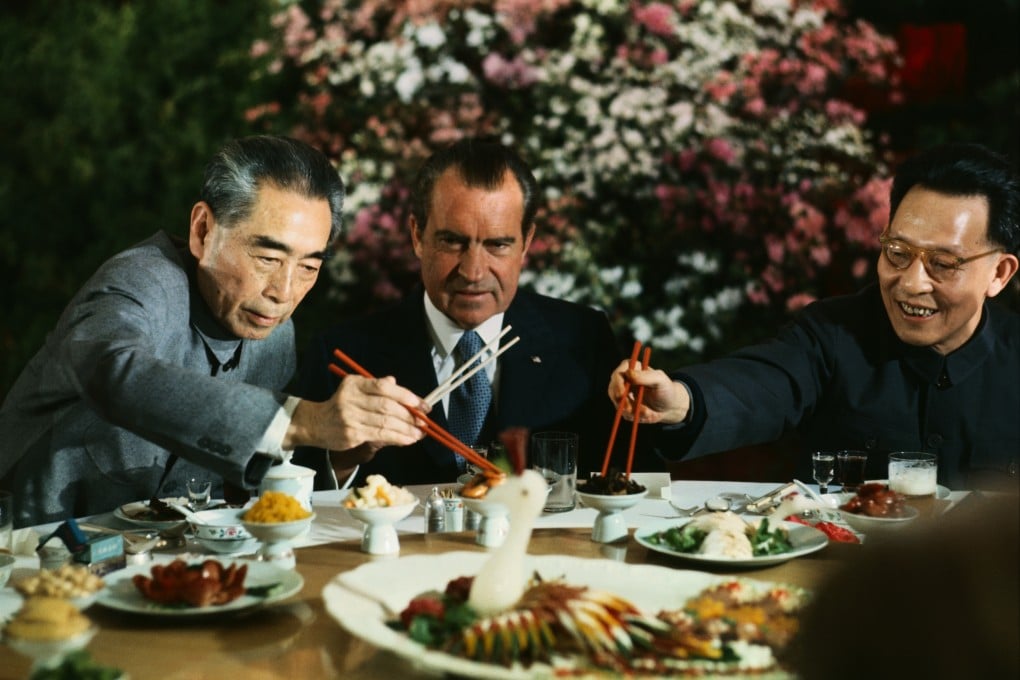Advertisement
Review | ‘Wolf warrior’ diplomacy’s long pedigree in China, and the man who gave birth to it: Zhou Enlai
- There is nothing new about Chinese diplomats’ theatrical anger and insistence the onus for progress rests with the other side, Bloomberg’s Peter Martin writes
- The same can be said of the flattery with which China beguiled US journalist Edgar Snow, Henry Kissinger and Donald Trump, he explains in a new book
Reading Time:3 minutes
Why you can trust SCMP
5

China’s Civilian Army by Peter Martin, Oxford University Press
Advertisement
Much has been written recently of a new tone of aggression in Chinese diplomacy, which has earned the country’s diplomats the title of “wolf warriors”, after the 2017 Chinese Rambo-like blockbuster film Wolf Warrior 2.
“Even though a thousand miles away, anyone who affronts China will pay,” read the tagline on the film’s advertising.
To write China’s Civilian Army, Bloomberg’s Peter Martin interviewed dozens of diplomats, and trawled though more than 100 volumes of memoirs by major and minor figures alike.

He finds no shocking revelations; even when written under pseudonyms and published during periods of relative political openness, these books were still censored.
Advertisement

Advertisement